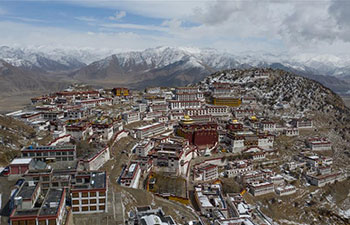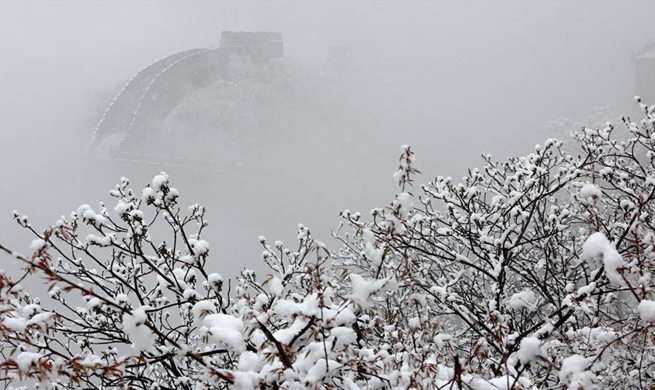LONDON, April 8 (Xinhua) -- One of the leading killers during volcanic eruptions is a fast-flowing mixture of hot gas, ash, and debris known as pyroclastic density currents. Now scientists may have found out why such pyroclastic flows travel so fast.
A new study, which was published Monday in the scientific journal Nature Geoscience, revealed that the pyroclastic flow is able to move so fast and so far because it can glide along on a cushion of air.
Together with his colleagues, Gert Lube, first author of the study from Massey University in New Zealand, created mini pyroclastic flows in a large-scale outdoor experimental setup by piling volcanic material into a giant hopper and heating the rock up to 130 degrees Celsius.
After using an elevator-like device to hoist the hopper into the air, the researchers dumped the hot volcanic material down a 12-meter shoot and tracked the flow with high-speed video.
The researchers discovered that the speed of the base of the flow is different to that higher up, which results in a lowering of the air pressure at the base of the flow. When the gas is pushed downwards, a film of air is formed at the base of the flow.
The team said this cushion of air effectively can carry the volcanic material down the slope, with the lack of friction meaning the flow moves much faster.
"Pyroclastic flows are the most devastating and deadly aspect of volcanic eruptions," Michael Manga, a geologist at the University of California, Berkeley, told online magazine Science News. He is not involved in the work. This new understanding may lead to better hazard models that inform where people build infrastructure and plan evacuation routes, he said.

















